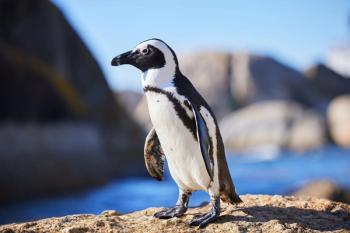
Will exotics be banned?
A new law that could ban ownership of nonnative animals is being debated in Washington.
Washington
-- Weaknesses of a revived federal proposal that could possibly outlaw nonnative animal species were exposed during a subcommittee hearing in the Capitol today.
House Resolution 669, introduced Jan 26, seeks to prevent further problems from nonnative invasive animal species like those caused already by the Northern Snakehead fish and zebra mussels. The Nonnative Wildlife Invasion Prevention Act, as it has been dubbed, is modeled after similar programs in Australia and Israel, and would require the U.S. Fish and Wildlife Service to develop a list of approved and unapproved species based on risk assessments that would judge which of the 10,000 nonnative species currently in trade would cause harm to the United States economy, environment or native animal species. The Fish and Wildlife Service would have three years to develop the lists, according to legislation, and animals like cats, dogs and most livestock would not be subject to the regulation.
Pet owners and pet industry advocate groups, as well as some food-animal organizations have been outraged by the proposed legislation, sending in thousands of letters to members of the Subcommittee on Insular Affairs, Oceans and Wildlife, which conducted the hearing April 23.
Del. Madeleine. Bordallo (D-GU), who sponsored the resolution, says there is some misunderstanding about the intent of HR 669.
"This bill is not intended to impact ownership of people's pets, nor the importation of domesticated or common species," she said during her opening remarks at the hearing, adding nonnative invasive species cost the nation about $120 billion in damages each year.
Gary Frazer, the assistant director for Fisheries and Habitat Conservation at the U.S. Fish and Wildlife Service, says his agency would be charged with administering and enforcing the new regulations and says he doesn't believe the majority of species would currently in trade would be placed on the unapproved list. Maybe 10 percent of the nonnative species in the country would make the unapproved list, he says.But Frazer and other witnesses called to speak at the hearing - including representative from academia, aquaculture, wildlife ecology and management, and the pet industry - say while they agree with the intent of the resolution, there are too many flaws in it as it's written to make it feasible.
Nonnative fish species like Tilapia make up a huge portion of U.S. fish consumption by humans, and hundreds of millions of dollars worth of fish production would be lost, says senior subcommittee member Rep. Henry Brown (R-SC). Pet stores, veterinarians, feed stores and other pet-related industries would be affected, too. And with so many people already losing their homes and jobs, why compound the problems by putting more pressure on these industries, he asked the subcommittee. Brown suggested amending the resolution to requiring only a "black list" on nonnative invasive species in order "to remove harmful species without destroying the entire pet industry."
Questions about whether the Fish and Wildlife Service would have the resources to develop the lists and enforce the new regulations were raised, as well as how pet owners who move across state lines would be affected by the new regulation. As it's written, pet owners who own species affected by the regulation would be "grandfathered" in to keeping their pets, but could not move them across state lines, putting pet owners forced to relocate in a tricky situation.
No decisions were made at the hearing, and a similar resolution died in consideration by federal lawmakers last year. No additional hearings or actions have been scheduled.
Newsletter
From exam room tips to practice management insights, get trusted veterinary news delivered straight to your inbox—subscribe to dvm360.






